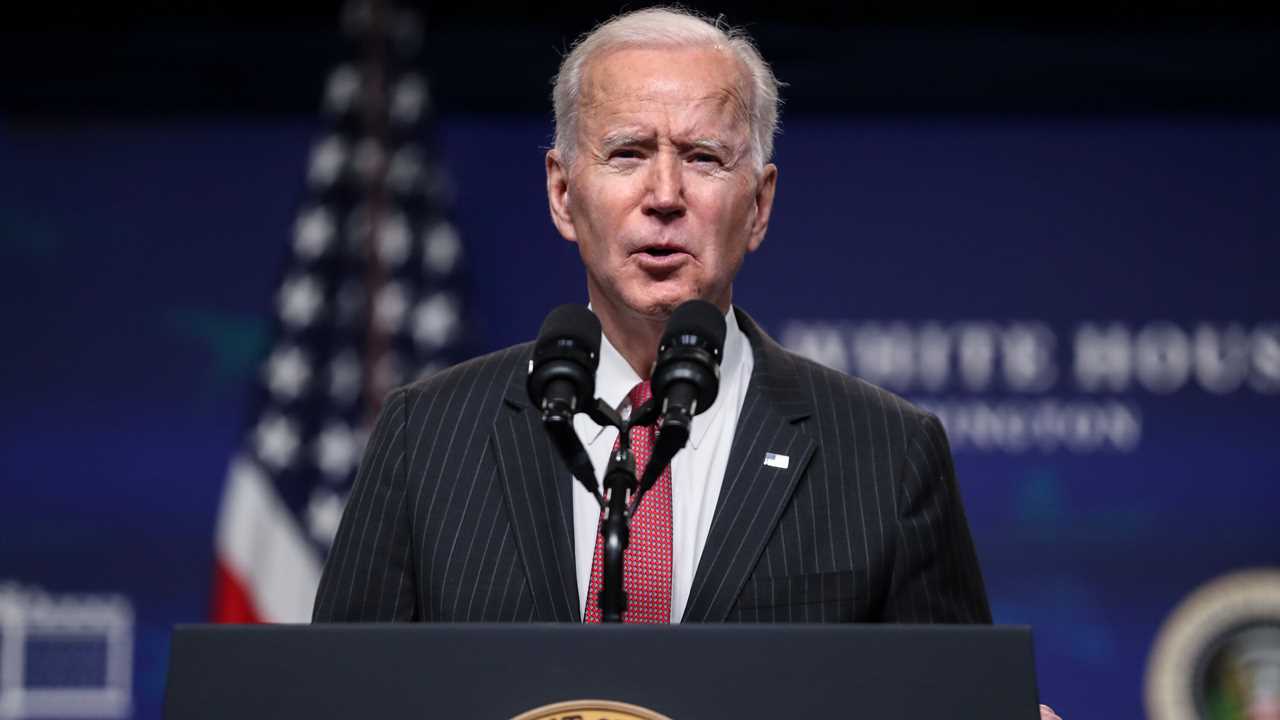
WASHINGTON — President Biden spoke Wednesday evening with President Xi Jinping of China, the first conversation between the two leaders since Mr. Biden’s election, the White House said.
Turning to what may be the most important foreign relationship of his presidency, Mr. Biden warned the Chinese leader about American concerns with Beijing’s aggressive policies abroad and human rights abuses at home while offering to cooperate on global priorities of mutual interest.
In a summary of the call, the White House said that Mr. Biden “underscored his fundamental concerns about Beijing’s coercive and unfair economic practices, crackdown in Hong Kong, human rights abuses in Xinjiang, and increasingly assertive actions in the region, including toward Taiwan.” But the leaders also discussed “the shared challenges of global health security, climate change and preventing weapons proliferation,” according to the summary.
Although it was their first conversation since becoming their nations’ respective leaders, Mr. Biden and Mr. Xi are well acquainted. In 2011 and 2012, when Mr. Biden was the vice president and Mr. Xi was the heir apparent to China’s presidency, the two men spent dozens of hours together. In a recent interview with CBS News, Mr. Biden said that he believed he had spent more time with Mr. Xi than he has with any other world leader. “I know him pretty well,” Mr. Biden said.
Mr. Biden’s personal approach to Mr. Xi is likely to be a marked shift from that of President Donald J. Trump, who spent his first three years in office showering the Chinese leader with praise and flattery in pursuit of a grand trade deal he never achieved, before bitterly turning on him last spring after the coronavirus emerged from China and devastated the U.S. economy.
All the while, Mr. Trump’s advisers treated China as the United States’ top strategic threat. By the end of Mr. Trump’s presidency, foreign policy experts generally agreed that relations between Washington and Beijing were near their lowest point since the 1949 Communist revolution. But most also believe the two nations have no choice but to cooperate on matters such as trade, climate change and global economics.
While Mr. Biden and Mr. Xi established something of a rapport during the Obama era, Mr. Biden has also been sharply critical of his counterpart, who soon after assuming China’s presidency in 2013 initiated a severe political clampdown at home and pursued aggressive territorial claims in East Asia.
“He’s very bright,” Mr. Biden told CBS of Mr. Xi. “He’s very tough. He doesn’t have — and I don’t mean it as a criticism, just the reality — he doesn’t have a democratic, small-D, bone in his body.”
Mr. Biden said that he and the Chinese president “need not have a conflict,” but warned that “there’s going to be extreme competition.”
“I’m not going to do it the way Trump did,” Mr. Biden added. “We’re going to focus on international rules of the road.”
In a briefing for reporters before the call, senior administration officials underscored that point. They said Mr. Biden would continue some of the Trump administration’s confrontational policies toward Beijing, which included contesting Chinese territorial claims in Asia, defending Taiwan’s independence and Hong Kong’s autonomy, and cracking down on China’s cybertheft and hacking. The Biden administration officials said their approach would be more effective than Mr. Trump’s with renewed ties to traditional American allies with whom Mr. Trump often picked fights.
They said they would retain the tariffs Mr. Trump imposed on China’s exports to the United States while they conducted a broad review of U.S.-China trade policy.
The work of competing with Beijing would begin at home, the officials said, with their efforts to defeat the coronavirus and rebuild the U.S. economy, including by bolstering next-generation technologies like artificial intelligence and 5G networks, in which China threatens to take a lead.
They also called it crucial to restore the United States’ damaged political institutions and reputation as a defender of human rights and democracy, areas in which Mr. Trump was often indifferent.
Earlier on Wednesday, Mr. Biden announced sanctions against Myanmar’s ruling generals for their role in a military coup this month, an action senior officials labeled a clear demonstration of America’s renewed commitment to democracy abroad — in this case, in China’s backyard.
And during an afternoon visit to the Pentagon, Mr. Biden announced the creation of a Defense Department task force to review U.S. military policies toward China. It will report its findings by summer.
Perhaps reflecting Mr. Biden’s tough campaign messaging about China and its leadership, Mr. Xi was among the last world leaders to publicly congratulate Mr. Biden on his victory. He was likewise among the last major leaders to speak to the new American president after his election.
That coolness is far from the friendly tone the men adopted in their several meetings in the United States and China during the Obama administration. During a 2013 trip Mr. Biden made to Beijing, Mr. Xi addressed him in the Great Hall of the People as “my old friend.”
Last week, Secretary of State Antony J. Blinken spoke with China’s top diplomat, Yang Jiechi, about human rights and democratic values, stability in Asia and China’s “undermining of the rules-based international system,” according to a State Department summary of the call.
In a speech this month to the National Committee on U.S.-China Relations, Mr. Yang said that the Trump administration had plunged the relationship “into its most difficult period since the establishment of diplomatic ties.”
“A strong case is made for cooperation instead of confrontation between China and the United States,” he added. But he warned the United States to “stop interference in the affairs of Hong Kong, Tibet and Xinjiang,” and “stop attempts to hold back China’s development by meddling in China’s internal affairs.”
Did you miss our previous article...
https://trendinginthenews.com/usa-politics/day-2-ends-in-procedural-chaos-as-senator-mike-lee-asks-for-his-name-to-be-struck-from-the-prosecutions-arguments






